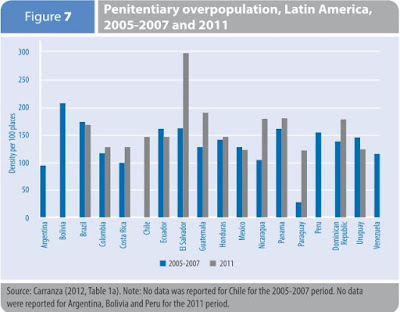Where gang violence does not exist
PRI published a report today on small towns in the department of Chalatenango where the gang violence which afflicts many other areas of El Salvador is nonexistent. The towns share a history of bloodshed during El Salvador's civil war and community organization dating back to organized opposition during the war years: There are about a dozen towns in Chalatenango where crime has been largely non-existent. They all share a history of massacres and civic participation. These towns are also small, with populations of about 4,000. For the most part, they’ve remained isolated from the rest of the country, along long and curvy roads. But that’s starting to change. Another 45-minute drive away from San Antonio de Los Ranchos, along a brand new highway, is the town of Nueva Trinidad. On a recent day, residents from a handful of nearby communities met here to discuss their public security strategies. Teachers spoke about the need for after-school workshops to keep kids...


